Securing Healthcare Data With AI
Table of Contents
Subscribe To Our Newsletter
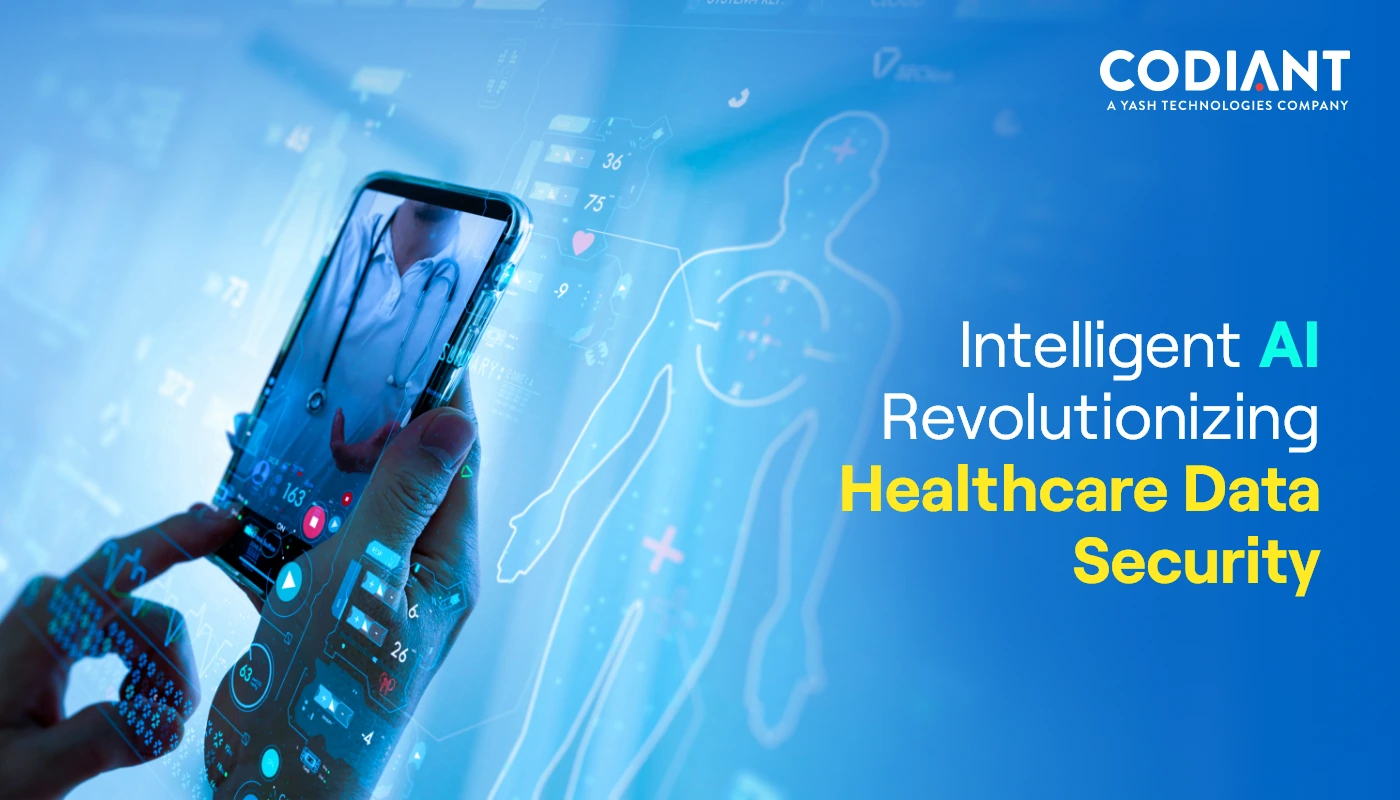
Artificial intelligence is fast changing the face of healthcare, improving the accuracy of diagnosis, the quality of patient care, and management efficiencies. The introduction of AI in surgeries, predictive analytics in treatment methodologies, and virtual nursing assistants assist physicians to provide care efficiently as never before.
Healthcare data consisting of information relating to medical records, billing, or personal information about patients have extremely high value and extreme sensitivity pertaining to their nature within the healthcare domain. Data protection in healthcare domain is not just from a regulatory standpoint but also from a standpoint of patient trust. Patients trust medical assistance with their most intimate details; therefore, data security has to be stronger than ever.
AI shows dual-edged scenarios, while it increases the security of clinical care with superior detection mechanisms but also has the potential to create loopholes if proper precautions are not taken. Therefore, these challenges need to be addressed in getting the maximum out of AI in healthcare.
Why Healthcare Data Needs Robust Protection?
Medical data holds good value for understanding patient’s history and offering treatment. However, it is increasingly vulnerable to hazards due to digitization. The following points highlight why protecting this data is critical to ensure patient trust.
-
-
Cybercriminals Target Medical Data
Medical record is among the most sensible targets for cybercriminals. Unlike credit card details or financial credentials—which can quickly become obsolete—medical records offer lasting value, containing sensitive personal identifiers usable for identity fraud, blackmail, or insurance fraud.
-
Digital Health Solutions Increase Risks
The health industry has increasingly adopted digital healthcare, transitioning from paper-based records to digital storage and Electronic Health Record security While digital transformation boosts efficiency, it also broadens potential cyberattack surfaces.
-
Data Breaches Affect Patient Trust
Data breaches in health management can have devastating consequences. Big breaches like the 2015 Anthem cyberattack and Medtronic’s IoT issues show how patient data can be at risk—even in trusted systems. The Anthem breach checked nearly 80 million records and thereby affects patient trust, finances, and the reputation of the company. This serves as a strong reminder that healthcare networks must be kept under constant scrutiny and upgraded for security.
-
In Recent Years, Healthcare Data Breaches Rose By 55%.
Protect your healthcare facility proactively with cutting-edge AI security solutions from Codiant. Contact our experts today and secure patient trust.
Role of AI and ML in Enhancing Healthcare Data Security
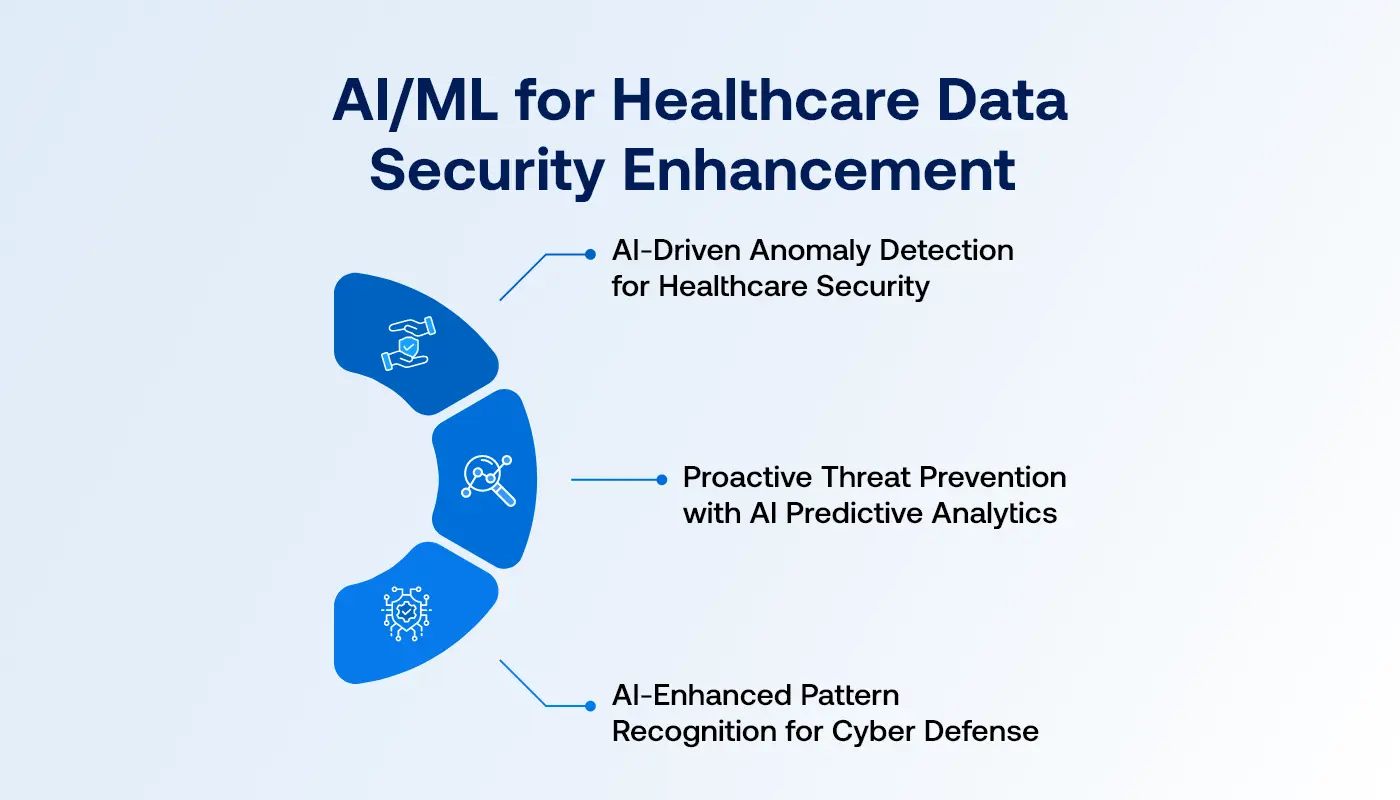
![]()
Now, patient services need smarter defenses due to the increasing complexity of cyber-attacks. AI/ML comes with hi-tech and interactive chatbots redefining healthcare consultations and reforming the future of healthcare information security.
In fact, these technologies bring powerful capabilities including behavioral analysis, threat prediction, and pattern recognition—that evolve continuously to outsmart attackers. Here’s how-
-
Anomaly Detection
Implementing AI and ML in healthcare security systems allows real-time monitoring of network activity. AI-powered systems rapidly detect anomalies and behavioral irregularities, distinguishing normal operations from potential threats, thereby preventing breaches at their inception.
-
Proactive Threat Prevention
Predictive analytics using AI technology in healthcare can anticipate and neutralize threats proactively. By examining historical data, AI systems can identify and flag high-risk behaviors or potential vulnerabilities well before they are exploited, enabling clinics to encourage defenses ahead of time.
-
Pattern Recognition
Machine learning models offer advanced pattern recognition capabilities. AI gets smarter by building on previous knowledge about cyberattacks adapting its detection mechanisms to anticipate future threats. This advanced protection is why anonymizing sensitive data is still very required in the industry.
Key Strategies Leveraging AI for Data Protection
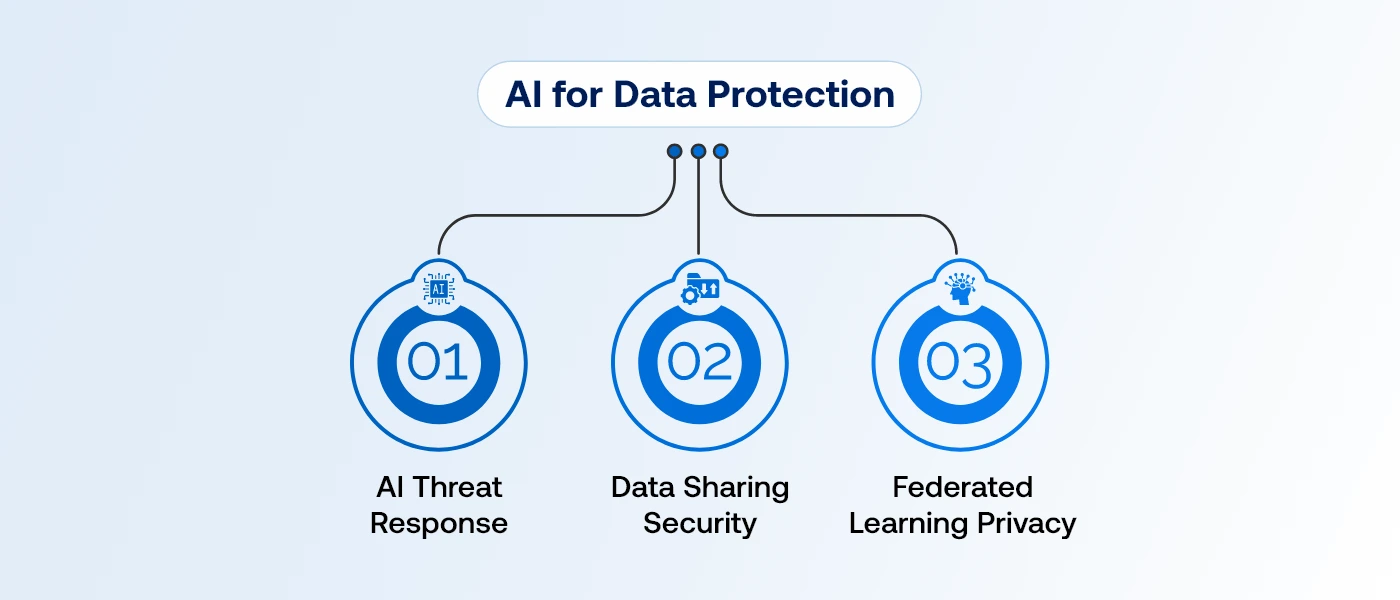
As cyber threats get smarter, AI is becoming a powerful tool to protect patient data. In this section, we’ll look at three keyways AI improves healthcare security—real-time threat detection, safer data sharing, and a new method called federated learning. These tools help hospitals and clinics stay secure while still working together and protecting patient privacy.
1. AI-Powered Threat Detection and Response
AI can monitor healthcare systems 24/7 and spot unusual activity right away. This helps stop attacks before they cause serious harm. Machine learning in healthcare makes it easier to detect threats, flag risks, and take quick action.
A great example is Johns Hopkins. They used AI to speed up their response to security threats and greatly improved how fast they could detect issues.
2. Encryption and Secure Data Sharing
AI helps in safeguarding the sharing of data. Equipped with end-to-end encryption, anonymization, and privacy tools, patient records are kept secure even if someone tries to access them on the sly.
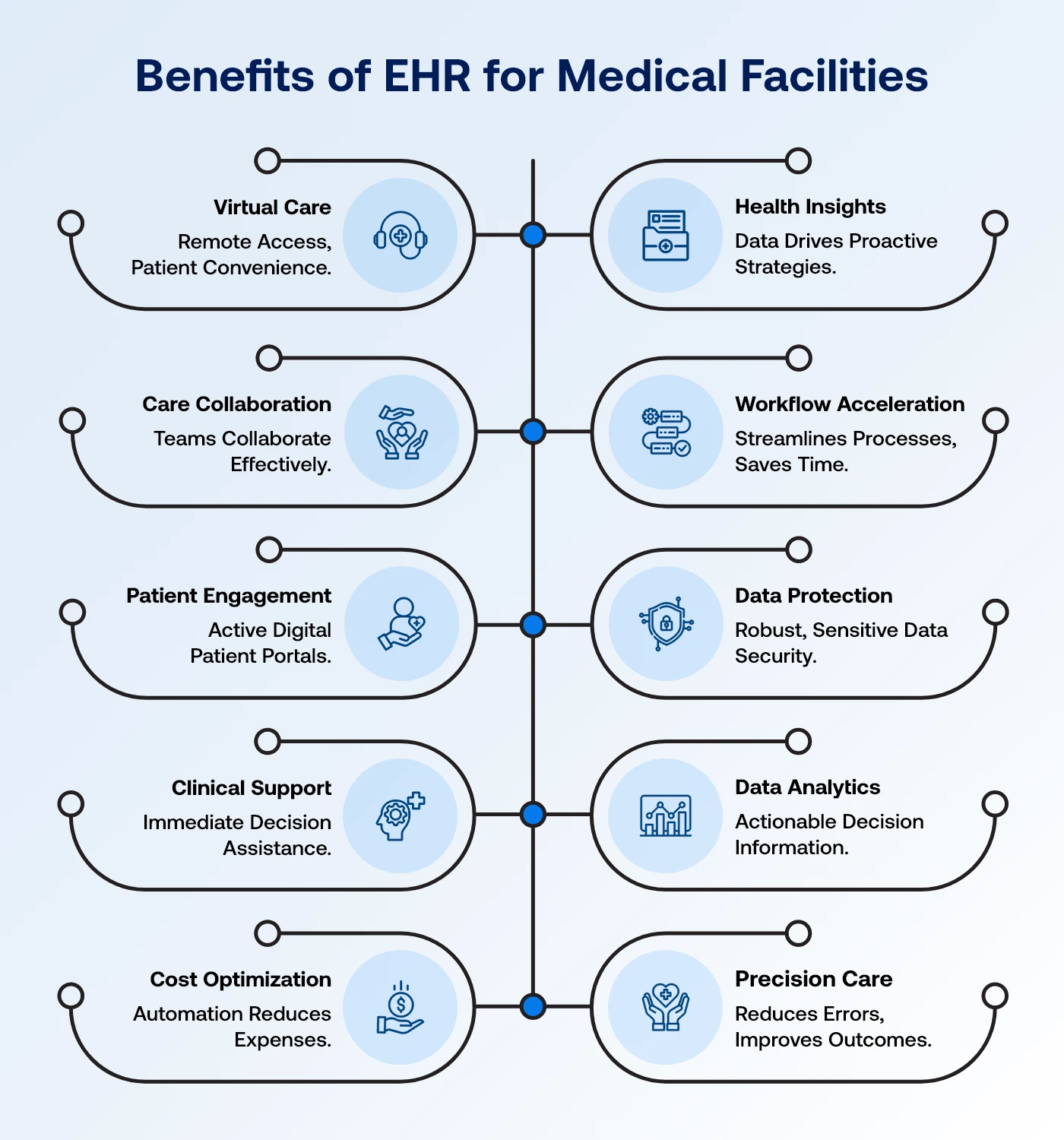
In addition, AI introduces an additional dimension on top of that by ensuring that only the appropriate individuals can access or share data such as Electronic Health Records (EHRs). This makes everything secure while allowing doctors and teams to collaborate effortlessly.
3. Federated Learning and Decentralized Data Models
Federated learning is a smarter way to use data without moving it. Hospitals and clinics can train AI models across different systems while keeping patient data in place. This lowers the risk of leaks or breaches.
It’s especially useful for research. Medical teams can share insights and improve treatments without ever exposing personal information.
Challenges and Risks of AI in Healthcare Security
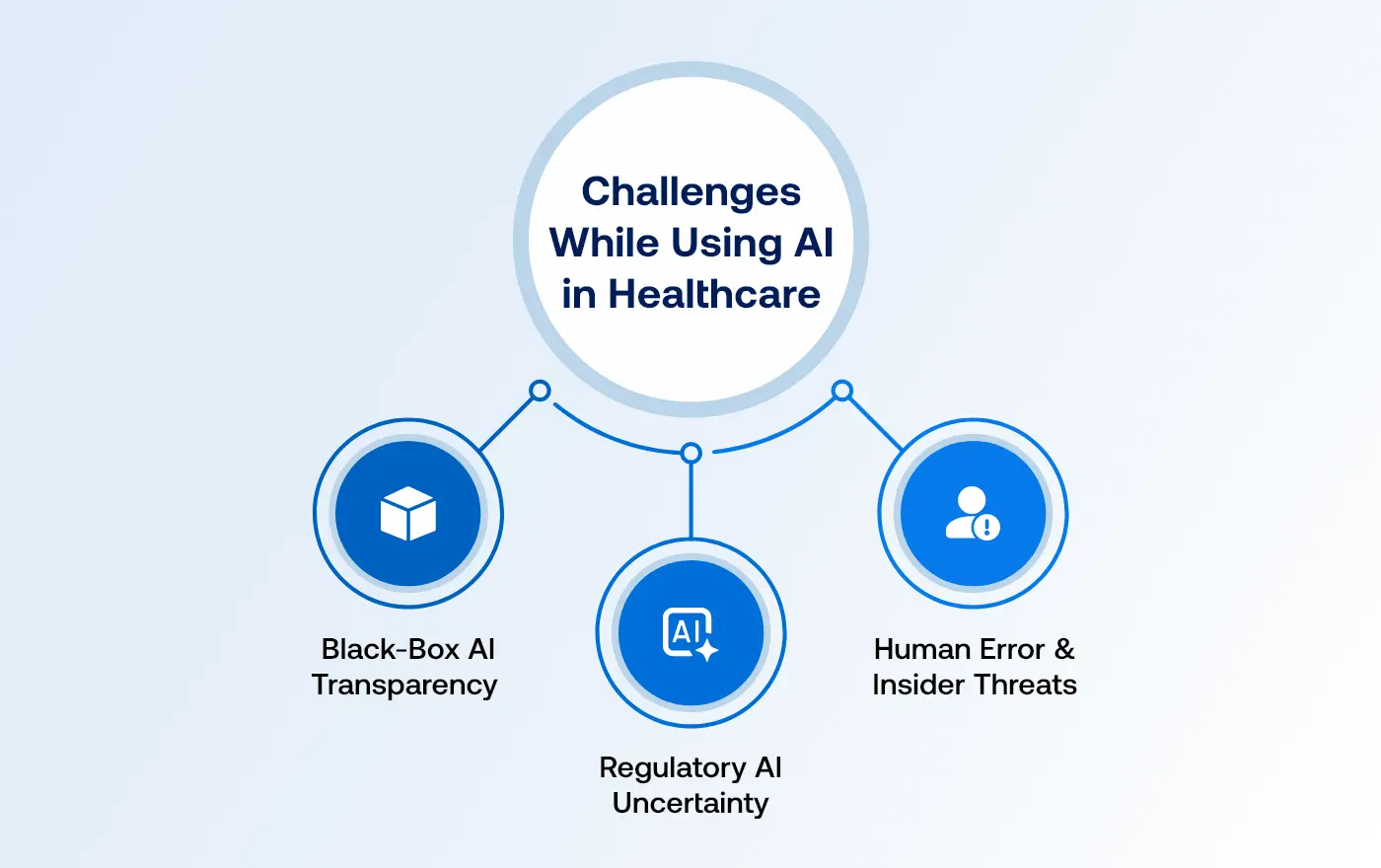
AI could be a game-changer for health care, but it’s not infallible. From bewildering system decisions to outdated rules and plain human error, the obstacles are serious.
Here is what healthcare providers should watch out for when using AI to protect sensitive patient information.
-
Black-box Models and Opacity
The “black-box” nature of AI can create difficulties. Without transparency into the decision-making process, it’s difficult for organizations to ‘explain’ or ‘justify’ those decisions. This creates compliance and trust issues when AI security solutions impact people.
-
Regulatory Ambiguity and Shifting Norms
The legal framework for using AI and protecting data privacy in healthcare, for instance GDPR, HIPAA and ISO standards, are constantly developing. The constantly evolving standards make infrastructure adherence quite a task and keep healthcare providers on their toes.
-
Insider Threats and Human Errors
Even the most advanced AI security solutions are left vulnerable to problems with human error and insider threats. Specialist training and surveillance are still required in order to reduce these risks.
Governance, Compliance & Ethical Use of AI in Healthcare
Effective AI integration in health systems hinges on compliance with evolving regulations and ethical frameworks. The points below depict key areas of focus—ensuring alignment with HIPAA, GDPR, and ISO 42001, navigating international data governance, and enforcing transparency and patient consent within compliant healthcare app.
-
-
HIPAA, GDPR, ISO 42001 Compliance
While integrating Artificial Intelligence with medical environment, it is must to ensuring GDPR, ISO 42001 or HIPPA compliance. The hospitals using AI make sure that their systems and practices remain compliant, least transparent, and ethically sound.
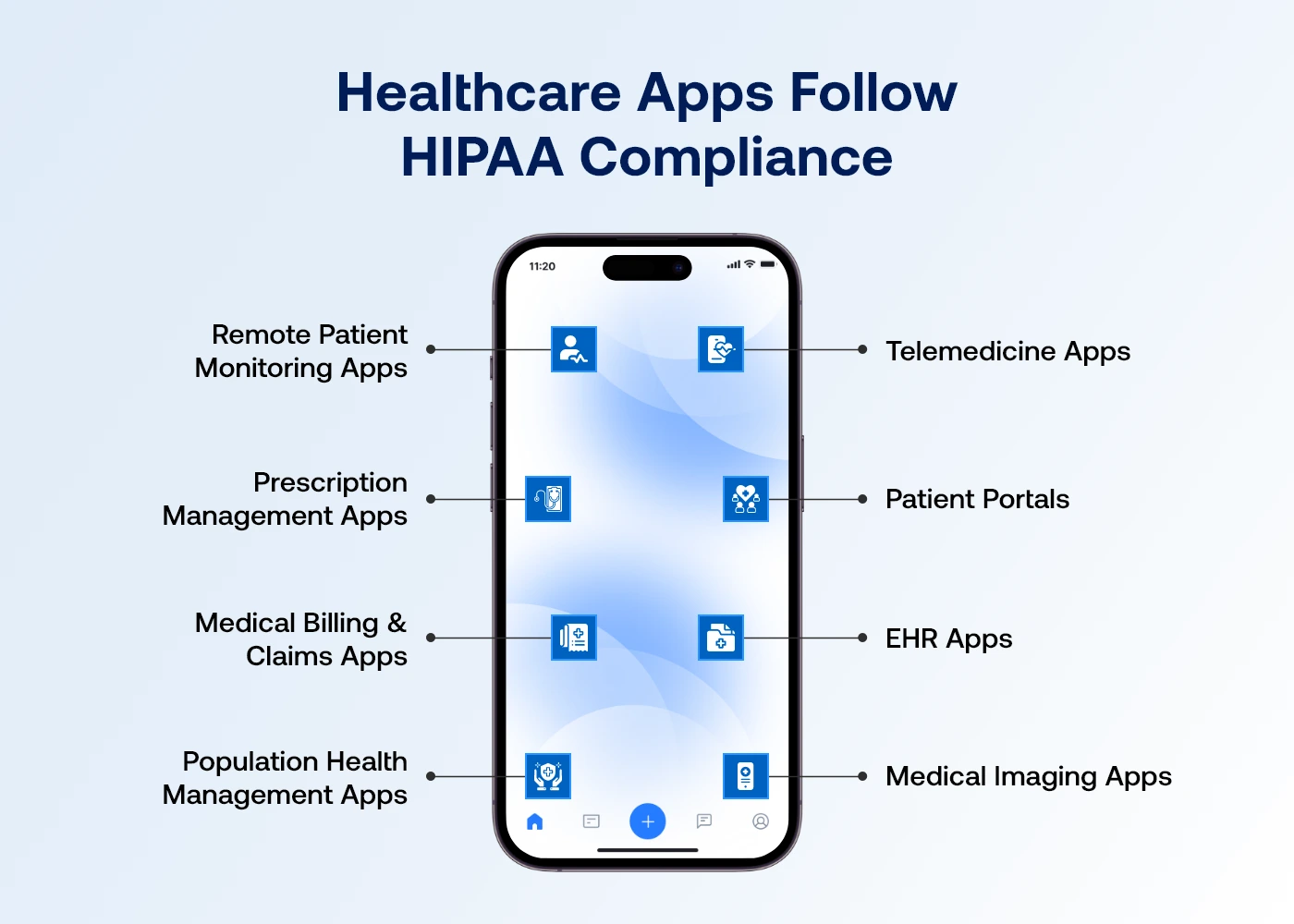
-
Cross-border Data Challenges
Cross-border data sharing complicates compliance, with diverse regulations globally. AI-based compliance solutions and healthcare apps help streamline this complexity, enabling health organizations to navigate international regulations smoothly.
-
Transparent Algorithms and Patient Consent
AI systems must remain transparent. Ethical AI implementation involves informing patients clearly about data use, obtaining explicit consent, and maintaining transparency in algorithmic decision-making processes.
-
83% of Healthcare Organizations Using Advanced AI Security Report Fewer Cybersecurity Incidents!
Enhance your data protection with Codiant’s customized AI solutions. Schedule your free consultation with us today.
Building a Security-First Culture in AI Healthcare Adoption
While adopting AI with healthcare, security is a major concern to safeguard patients’ data and hospital information. Read below how you can build a security-first culture in the sector.
-
Zero Trust Architecture in Hospitals
A Zero Trust approach in patient services implies verifying every entity before granting system access, substantially reducing potential attack vectors.
-
Cross-functional AI and Security Committees
Cross-functional teams—integrating AI specialists, cybersecurity experts, compliance officers, and healthcare professionals—strengthen institutional security by ensuring cohesive policies, proactive strategies, and streamlined responses.
-
Employee Training and Awareness Programs
Regular employee training creates awareness around cyber threats, responsibilities, and correct responses, thereby significantly reducing human vulnerabilities in cybersecurity.
Future-Proofing AI Security in Healthcare
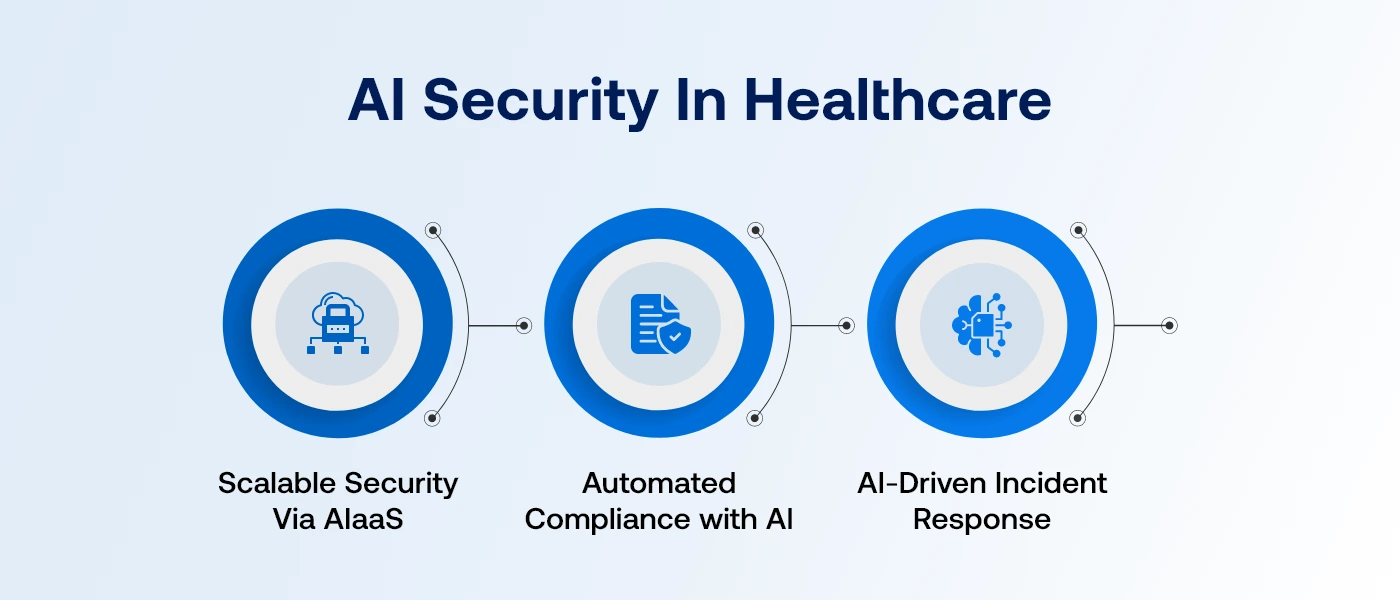
With threats and regulations constantly evolving, future-proofing healthcare security is non-negotiable. The strategies below showcase how AIaaS, automated audits, and AI-driven response systems enable institutions to scale securely, detect threats faster, and maintain compliance effortlessly.
-
Role of AIaaS in Scalable Healthcare Data Protection
AI-as-a-Service (AIaaS) solutions provide scalable, cost-effective, and up-to-date security, ideal for medical institutions adapting to ever-changing threats and regulatory landscapes.
-
AI Automation in Compliance Auditing
AI-driven automated compliance audits accelerate and simplify adherence to complex regulations, identifying potential compliance issues rapidly.
-
Integrating AI into Incident Response Frameworks
Embedding AI into incident response processes accelerates threat detection, remediation, and recovery, minimizing disruption and maintaining patient trust.
Summing Up
The Codiant AI solutions in Australia & USA in healthcare represent opportunity in the industry. By navigating these complexities strategically, ethically, and proactively, nursing homes can leverage AI’s full potential, ensuring data security, compliance, and patient trust.
Frequently Asked Questions
Healthcare risks come from ransomware, phishing, insider threats and a major flaw in connected medical devices, with sensitive data and operational systems in the crosshairs.
Absolutely. Artificial intelligence improves automation with compliance checking, the monitoring of database access, and report generation, hereby supporting integration with complex regulations.
This approach offers an AI model to be trained on global healthcare data, delivers security by not creating a pool of sensitive patient data.
Healthcare information is a type of sensitive information by its very personal and durable nature and so it is targeted more for identity theft and other wrong reasons.
AI offers both risks and solutions. It’s effective, but only if security is sound and it is implemented responsibly, providing considerable value when handled correctly.
Featured Blogs
Read our thoughts and insights on the latest tech and business trends
How Much Does It Cost to Develop an AI System in Dubai?
- October 8, 2025
- Artificial Intelligence
KeyTakeaways: AI adoption in Dubai is booming - driven by the UAE’s AI Strategy 2031 and Dubai’s smart city vision. Costs vary widely- Small projects start around AED 70,000, while enterprise-grade AI platforms can exceed... Read more
Sustainability and AI in Focus- Deep Dive into the GITEX Global 2025 Agenda
- October 3, 2025
- Artificial Intelligence Gitex
Every October Dubai becomes the global capital of technology when GITEX Global opens its doors. This year GITEX Global 2025 (October 13th to 17th at Dubai World Trade Centre) is set to be the biggest... Read more
How HVAC Companies in USA Use Chatbots and AI to Improve Customer Service?
- October 1, 2025
- Artificial Intelligence
Key Takeaways: AI is no longer optional for HVAC – in 2025, over 70% of U.S. contractors have tested AI, and about 40% use it regularly. Chatbots improve response times by handling service requests instantly,... Read more





